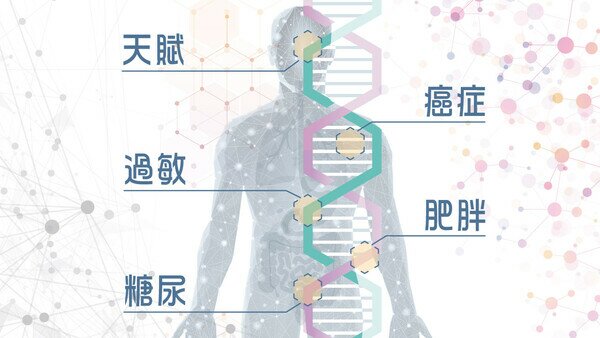As consumers have become more health-conscious in recent years, many yearned to discover health issues in advance and receive timely treatment by making use of cutting-edge technology in medical tests. This gave rise to a wide variety of genetic tests in the market, including tests for cancer diagnosis, nutrigenomics, or even predicting the behaviour and personality of children. The prices ranged from a few hundred dollars for an individual test item to almost a hundred thousand for an integrated one. The Consumer Council enquired into the service details of these tests posing as an ordinary consumer. It was found that the genetic tests offered by many service providers required further clinical data to support their credibility, and that some test results appeared debatable. The Council reminds consumers that the results of tests that are predictive in nature can be influenced by multiple genetic or external factors. Issues such as false positive or false negative results may also arise. Therefore, consumers must consult medical professionals (such as their own attending doctors) for advice in determining the need, in order to avoid paying exorbitant testing fees, as well as dealing with inaccurate diagnoses and needless anxiety.
Since cancer is the number one killer in Hong Kong, many consumers hope to discover the early signs before its onset so that timely intervention can be made. Currently, there are 2 types of genetic tests for cancers: The first type is companion diagnostics, which studies the molecular changes in cancerous cells to diagnose and treat cancers; the second type is tests that predict the risks of contracting cancer.
Genetic tests for hereditary cancers are an example of the second type and involve the screening of genes aimed at discovering malignant genetic mutations before the onset of cancers and facilitating prevention and early diagnosis. These tests are more suitable for individuals who have a history of cancers in family. However, test results that are predictive in nature can be “ambiguous” or “of unknown significance”. They may also produce false positive or false negative results.
According to medical experts, some genetic tests for hereditary cancers which analyse whether different body fluids, such as blood or urine, carry signals of cancer gene mutations, but are not applicable to all types of cancers. For some types of cancers, this kind of novel detection indicators are of limited significance. For example, the sensitivity in detecting breast cancer is relatively low.
The study also found that some service providers claimed that they could test more than 500 genes related to cancers, and that their pricing plans were based on different genetic make-up. Some service providers even claimed that they could assign professionals to analyse their clients’ reports and recommend test items, even without doctors’ referrals. Other service providers purported that their test results were not medical reports. The Council reminds consumers that they must consult their attending oncologists for professional advice before and after tests. To avoid a waste of money, they should also check that the tests are conducted under the clinical supervision of doctors, and that the coverage of gene make-up match their treatment plans. Besides, relatively high-risk individuals who have a history of cancers in the family must have comprehensive consultation before undergoing tests, so as to ensure that the benefit of undergoing tests exceeds the risk of possible anxiety and, even worst, being discriminated against under certain circumstances.
Regarding genetic tests that target children, there are services that test characteristics such as talent, behaviour, personality as well as tendency to suffer from autism. Some even alleged that babies as young as 0 years old could receive tests. The Council reminds consumers that while genes have a certain degree of influence on characteristics such as talent, behaviour and personality, they should not predict the future development and growth of children solely based on genetic test results. Acquired factors such as family upbringing, social culture and quality of education are equally important to children’s future development. In addition, expectant mothers should not rely on simple genetic tests to determine whether their foetuses will suffer from autism or whether they should abort their foetuses because this puts them at risk.
Besides, some service providers offered “nutrigenetic tests” and claimed that they could offer personalised dietary recommendations based on the genetic make-up of different people. The Hong Kong Dietitians Association is of the view that diseases such as food allergy, obesity and type 2 diabetes could not be diagnosed solely based on genetic test results, and that whether someone will eventually suffer from these diseases or not depended on the complicated interactions among factors such as genes, environment and lifestyle. A paediatrician of the Hong Kong Medical Association asserted that, by diagnosing food allergy using genetic test results alone, parents ran a higher risk of misjudgement and wrongly avoiding foods that did not trigger allergic reactions, thus missing out on certain nutrients. Concerning preventing obesity, currently there are no specific prevention strategies or treatment plans even for persons classified as high-risk by genetic tests. A healthy diet and regular exercise are still required for prevention. Conversely, persons classified as low-risk cannot be guaranteed obesity-free if they lead an unhealthy lifestyle.
When choosing genetic testing services, consumers should pay heed to the following:
- Assess the actual needs and risks involved by consulting medical professionals before undergoing genetic tests;
- Beware of test administrators promoting dietary supplements or treatment plans based on test results, as these products might not be necessary in terms of dietetics, while the overuse or misuse of such products might even damage health;
- Before undergoing genetic tests, beware of privacy issues and enquire about who has the authority to access the test results, what privacy protection measures are in force and how the handling policy of samples after tests.
The Consumer Council reserves all its right (including copyright) in respect of CHOICE magazine and Online CHOICE.



